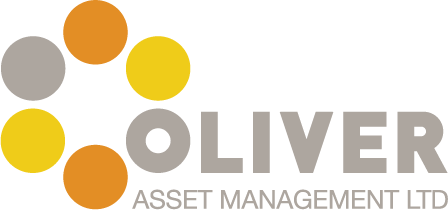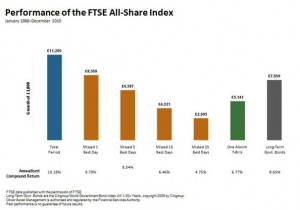Amongst other stories of questionable advice heard this week, my favourite was (and I’m certain this is what was said) that investing in Ethiopian water funds would be a good basis for long term pension planning. Clearly there is still a huge gap in existence between good and bad quality IFA firms and this lead to some thought on the process by which clients “select” their financial adviser of choice.
Can they recognise whether the business they might engage with has a high quality service that they will value?
What is available within that business that helps give potential clients the information to make a reasoned judgement?
Or is it simply the winning smile of the adviser?
Recommendation and personal knowledge of the individual concerned might figure highly in the criteria used (amongst a whole range of other things before you start calling)
Whatever it is that gets you there, once a relationship is established, does the client value the individual giving the advice or the advice itself going forward?
Or even a bit of both.
I’ve heard this week that well worn phrase “my clients value me over any fancy-dan report/
service/investment strategy. I could, but don’t, give them” and in context of RDR Adviser charging this needs a little further investigation I believe.
And as one who has indeed uttered the above phrase in the past but has since had successful treatment to stop doing it, I felt qualified to comment.
Many years ago, I opened my first personal bank account with the Clydesdale Bank because the local manager had set up a help desk in the Office in which I worked.
At the time I thought it would be handy to know the local “man.”
Through time I switched to The Royal Bank of Scotland and have been with them for 25 years.
I used to value greatly the staff at the branch in Sauchiehall Street in Glasgow who knew who I was and sorted any problems I had quickly and efficiently. They also put more staff on at lunchtime.
Contrast this with a recent visit to the local Mussleburgh branch where I watched the manager look at the ever growing lunchtime queue, put her coat on and get the hell out of Dodge!
I suspect if I were to create a list of criteria to select a bank today, it would differ greatly to my original drivers.
Number and handiness of ATM’s, online service capability and reasonableness of charges might hold more sway over how nice or helpful the staff were.
So, do I value the service or the people?
In this case, clearly the service has more interest to me than the staff, but imagine how delighted I’d be if I got both.
Do I sense that the bank has more interest in increasing shareholder value? Or do they want me to value their fabulous services? The latter would, in the long term, lead to a more robust version of the former than any quick tricks.
I will never deny the right of any business to make a profit but if you lead with this as your defining criteria, the customer will suffer in poor overall service (and, as I’ve said before, it takes more than a fancy ad campaign to convince me otherwise).
So back to my point (at last, some may say).
How do you create a list of criteria for selecting your financial adviser?
Trustworthiness, honesty, experience, qualifications, recommendations, process etc etc.
You may well also value them as individuals but this need to be backed up by a defined range of services, actions and documents that helps support the warm fuzzy glow.
In the world of adviser charging, it’s not enough to assume that your clients will be happy to pay for this emotion. In fact, it never has been enough.
Detailing why existing and potential clients might need and value your service, how it is delivered and what the clients can expect from you, is a basic building block of today’s advice process and if your not already able to do this (and document it) you’re dead in the water.
Clients may indeed value you more than any fancy-dan report/service/investment strategy but it certainly wouldn’t do any harm to provide this too. And I’m pretty sure clients want the information in the correct format to back up the words.
This approach doesn’t need to make things more complicated. It can be a complex process but conveyed in the right terms.
Empathy, reassurance and practical help. It’s all us clients ever ask for.
Big and small business, take note.
Roland Oliver
June 2012

